Moku:Lab shows up as COM port instead of RNDIS
This article details steps to fix an issue with Moku:Lab that causes it to be registered as a COM port
-
Moku:Go
Moku:Go General Moku:Go Arbitrary Waveform Generator Moku:Go Data Logger Moku:Go Digital Filter Box Moku:Go FIR Filter Builder Moku:Go Frequency Response Analyzer Moku:Go Logic Analyzer & Pattern Generator Moku:Go Oscilloscope & Voltmeter Moku:Go PID Controller Moku:Go Spectrum Analyzer Moku:Go Waveform Generator Moku:Go Power Supplies Moku:Go Lock-in Amplifier Moku:Go Time & Frequency Analyzer Moku:Go Laser Lock Box Moku:Go Phasemeter
-
Moku:Lab
Moku:Lab General Moku:Lab Arbitrary Waveform Generator Moku:Lab Data Logger Moku:Lab Digital Filter Box Moku:Lab FIR Filter Builder Moku:Lab Frequency Response Analyzer Moku:Lab Laser Lock Box Moku:Lab Lock-in Amplifier Moku:Lab Oscilloscope Moku:Lab Phasemeter Moku:Lab PID Controller Moku:Lab Spectrum Analyzer Moku:Lab Time & Frequency Analyzer Moku:Lab Waveform Generator Moku:Lab Logic Analyzer/Pattern Generator
-
Moku:Pro
Moku:Pro General Moku:Pro Arbitrary Waveform Generator Moku:Pro Data Logger Moku:Pro Frequency Response Analyzer Moku:Pro Oscilloscope Moku:Pro PID Controller Moku:Pro Spectrum Analyzer Moku:Pro Waveform Generator Moku:Pro Lock-in Amplifier Moku:Pro Laser Lock Box Moku:Pro Digital Filter Box Moku:Pro FIR Filter Builder Moku:Pro Phasemeter Moku:Pro Multi-instrument Mode Moku:Pro Logic Analyzer/Pattern Generator Moku:Pro Time & Frequency Analyzer
- Python API
- MATLAB API
- Arbitrary Waveform Generator
- Data Logger
- Digital Filter Box
- FIR Filter Builder
- Frequency Response Analyzer
- Laser Lock Box
- Lock-in Amplifier
- Oscilloscope
- Phasemeter
- PID Controller
- Spectrum Analyzer
- Time & Frequency Analyzer
- Waveform Generator
- Logic Analyzer & Pattern Generator
- Multi Instrument Mode
- Moku Cloud Compile
- Moku general
- LabVIEW
- mokucli
For Moku:Lab with firmware 580 and later, simply connect a micro USB cable between the Moku:Lab and your Windows PC. No further driver download is required; the Moku: app will automatically detected the Moku:Lab on the USB port.
The below article refers to older Moku:Lab firmware, prior to version 580.
Moku:Lab can connect to the Moku Windows app via a simple USB cable; no ethernet or WiFi is needed. For Moku:Lab devices operating on firmware versions prior to 580 and software versions below 3.0, establishing a USB connection requires the utilization of RNDIS ("Remote Network Driver Interface Specification"). For more information about how to connect to Moku:Lab, please refer to this article.
Occasionally, the Windows Device Manager may identify Moku:Lab as a COM port device instead of the RNDIS, resulting in the devices not appearing in the Moku App. In such instances, the installation of an RNDIS driver becomes necessary.
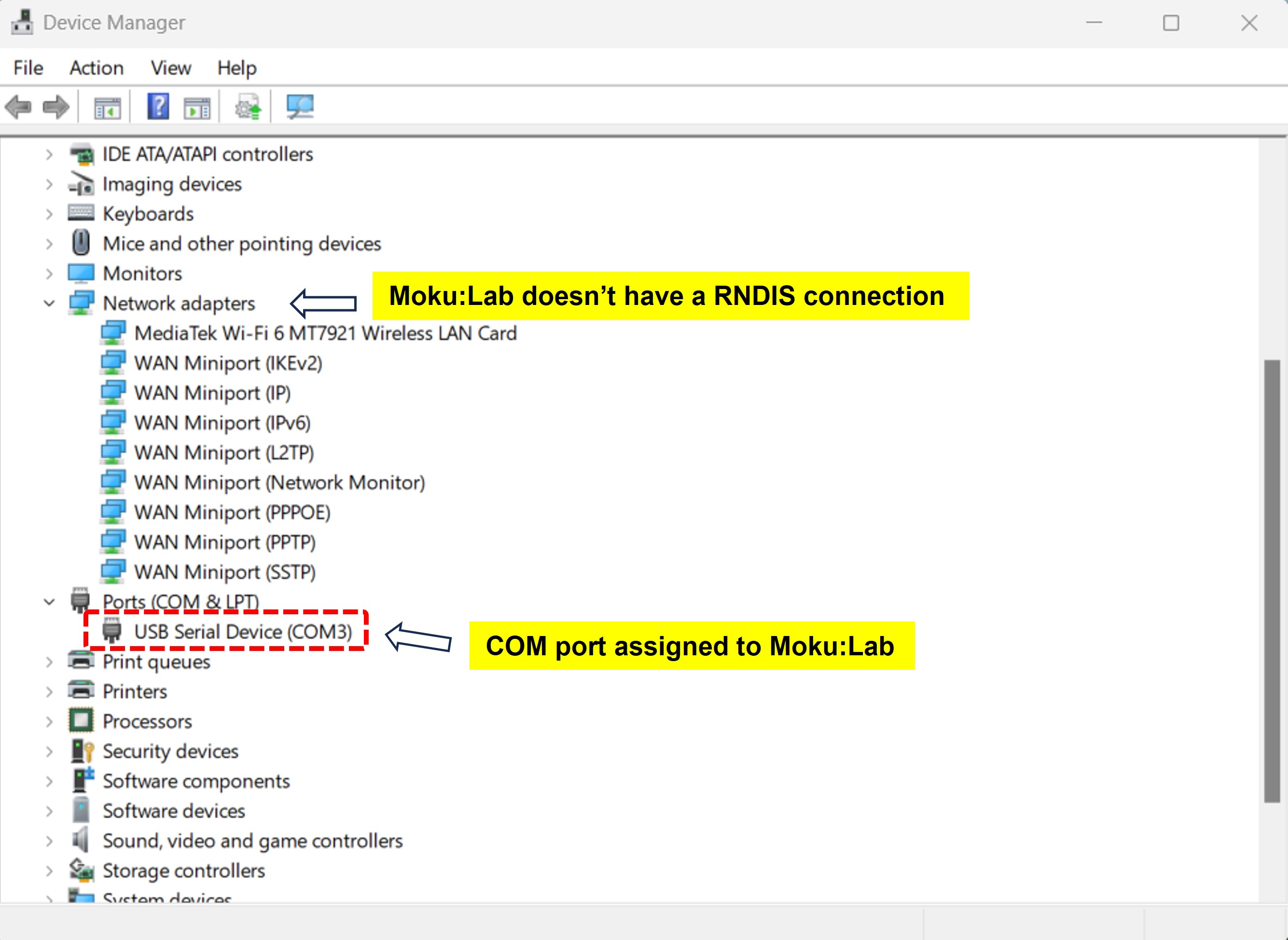
Procedures
1. The RNDIS driver can be download here (external link) and it is the 6th driver on the list. Please be aware that this website and associated driver downloads are kept updated by Microsoft and Liquid Instruments has no part in the driver updates.
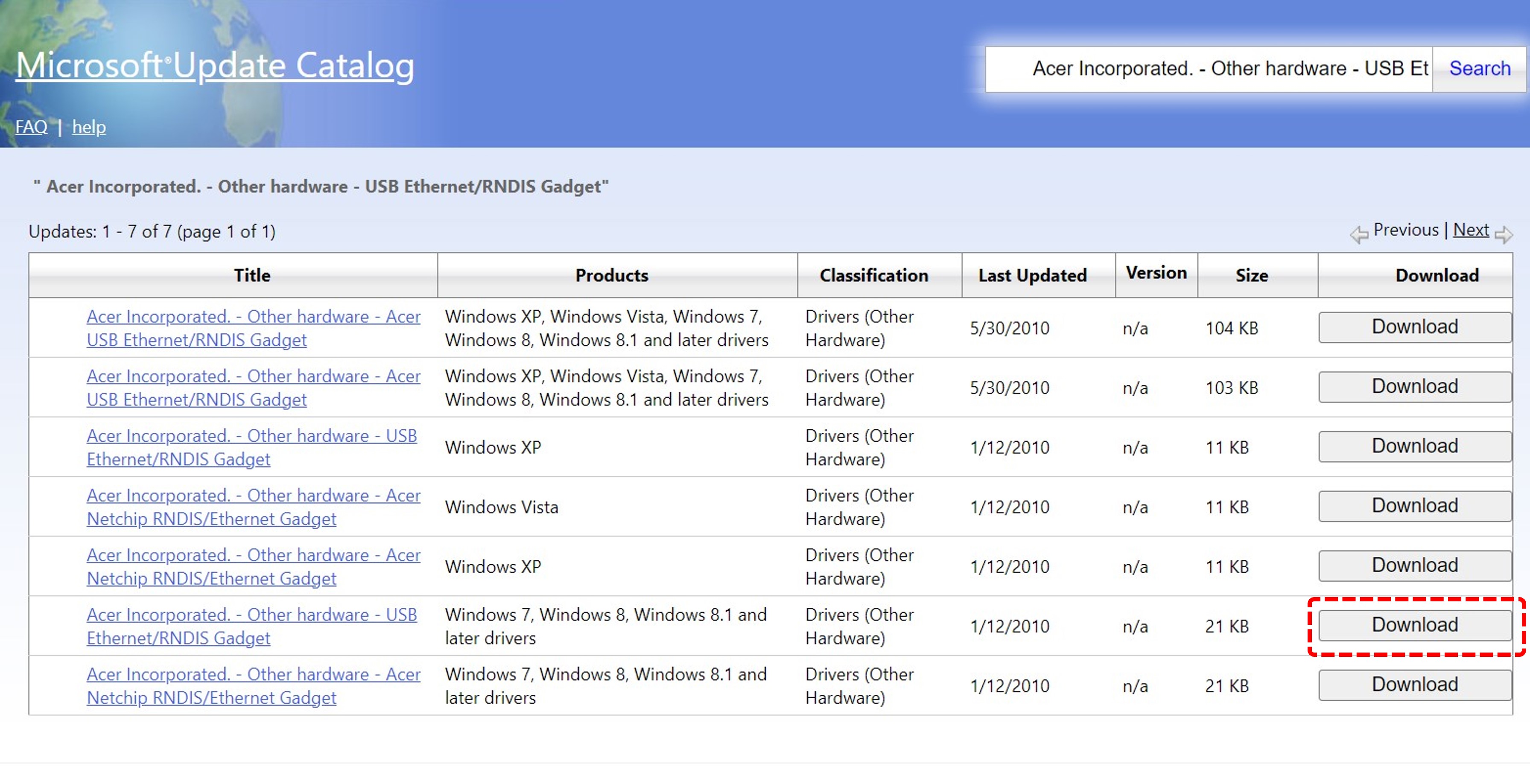
2. The downloaded '.cab' file contains a 'rndis.cat' file and a 'RNDIS.inf' file. Select both files, right-click, and select Extract.…
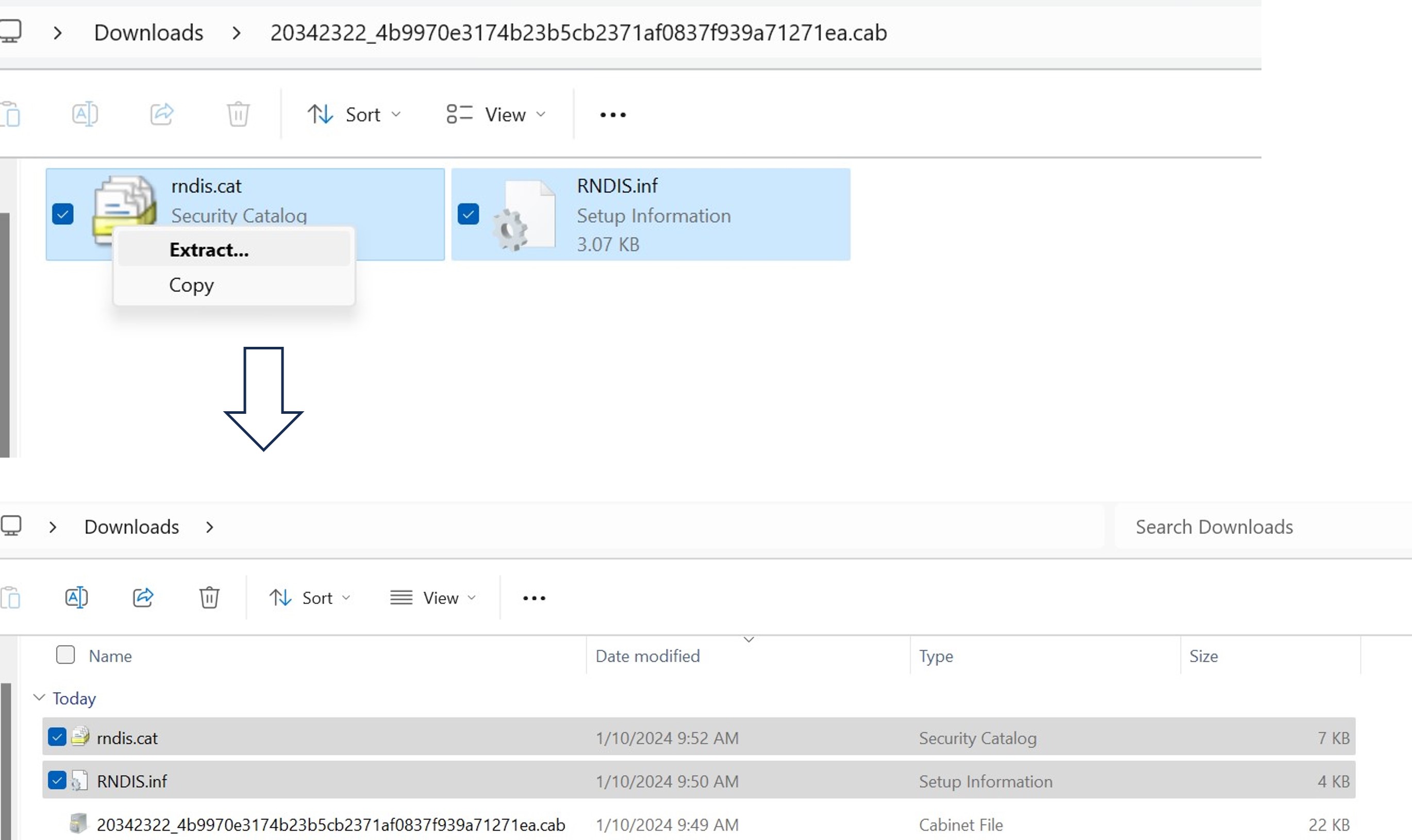
3. Open Device Manager on your computer, go to the COM Port that your Moku device is recognized, then right-click it to open Properties. Note that your (COM3) Port may be different.
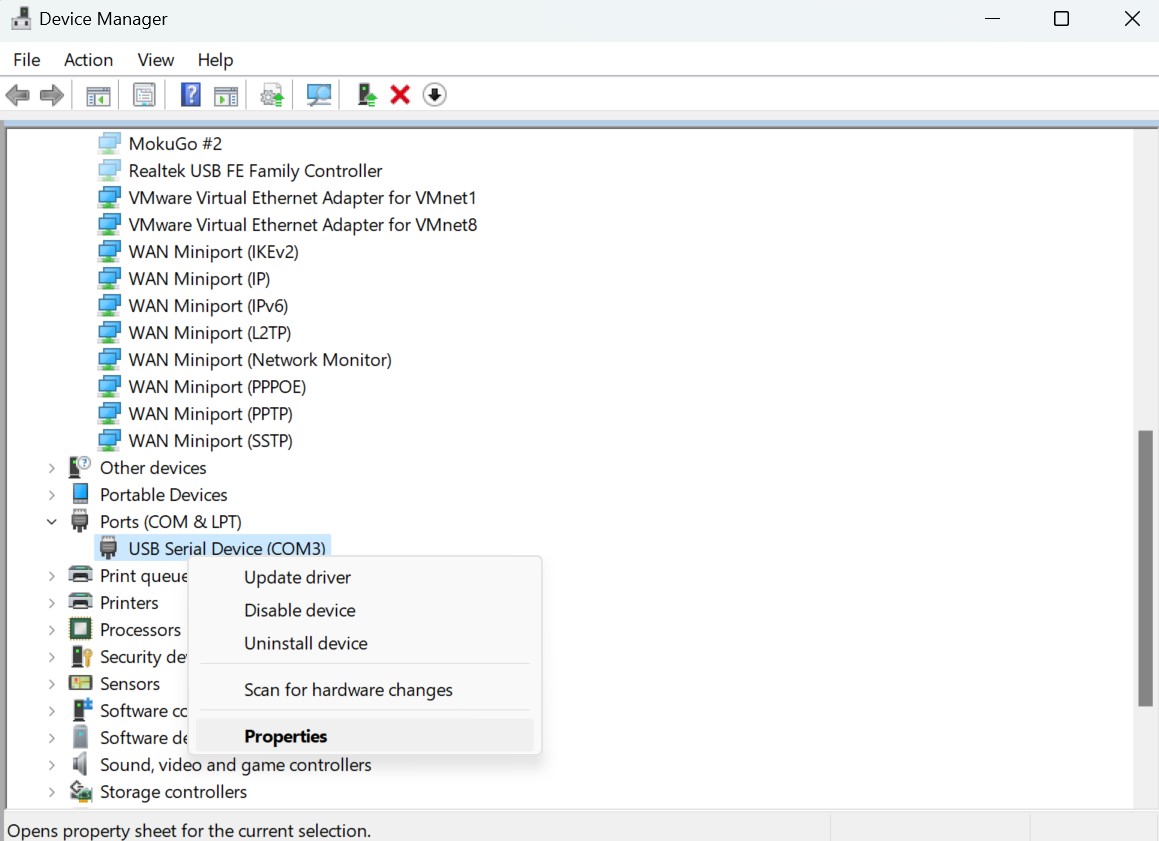
4. Under the tab Driver in Properties window, select Update Driver.
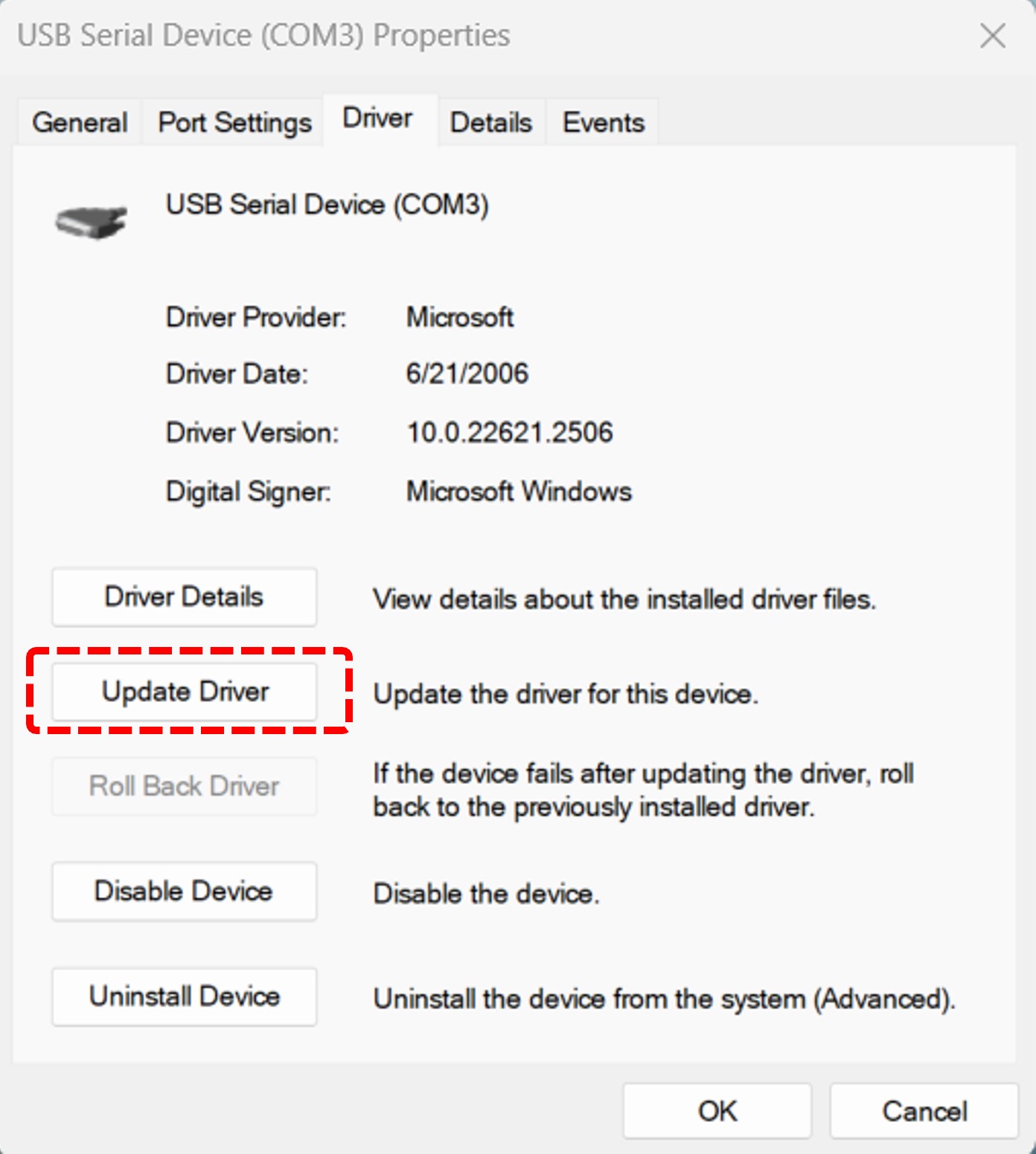
5. Select Browse my computer for drivers.
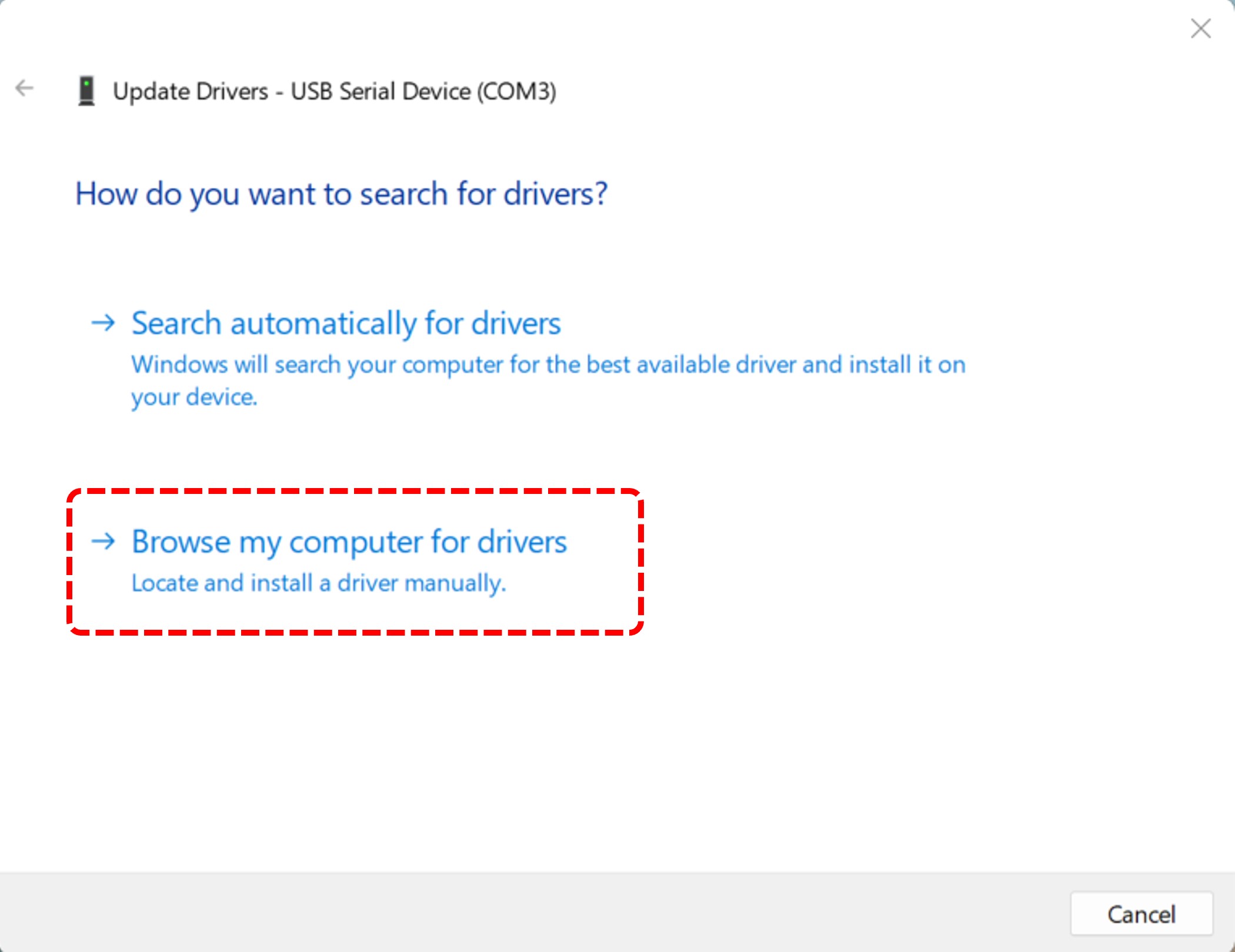
6. Select Let me pick from a list of available drivers on my computer.
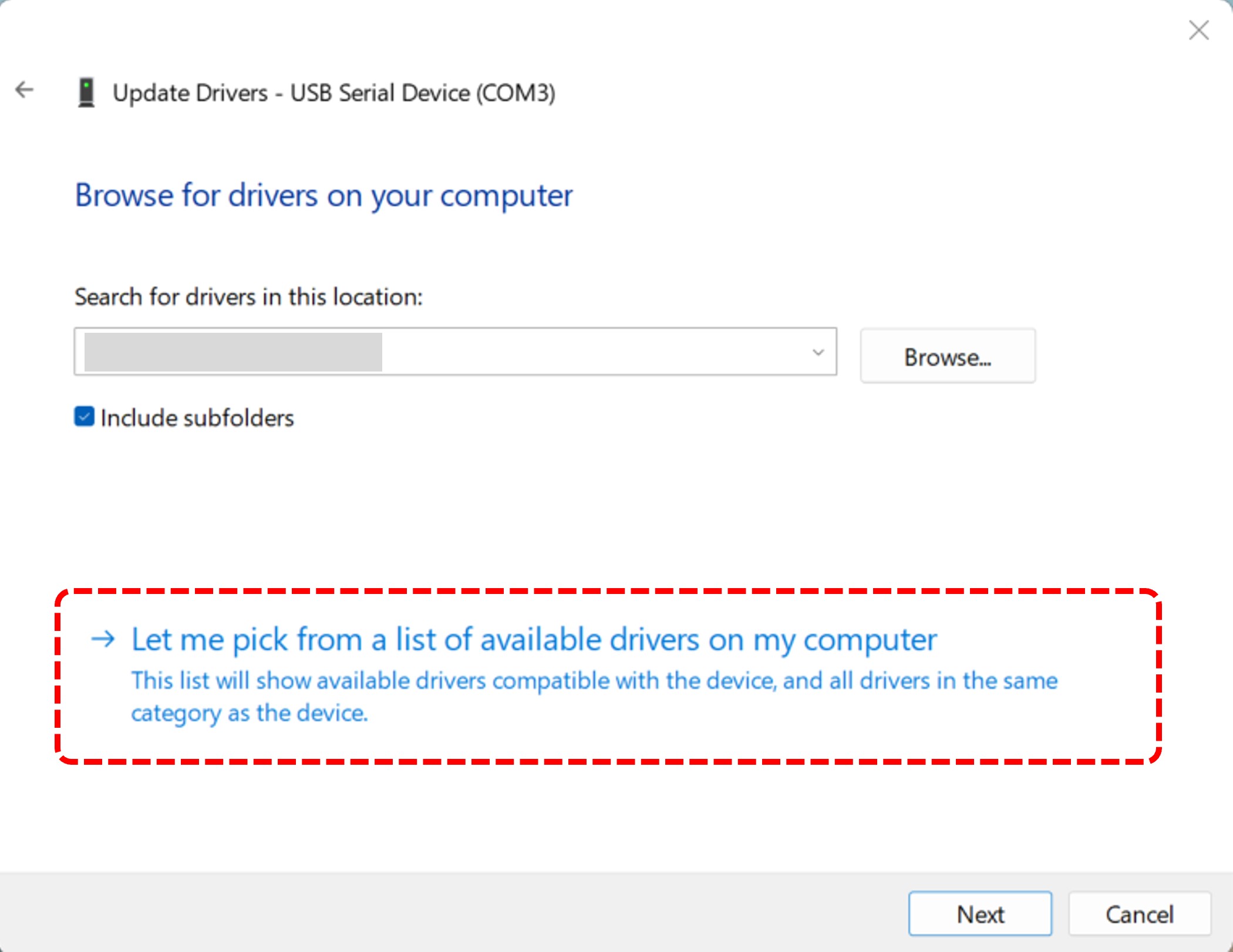
7. Select Have Disk.
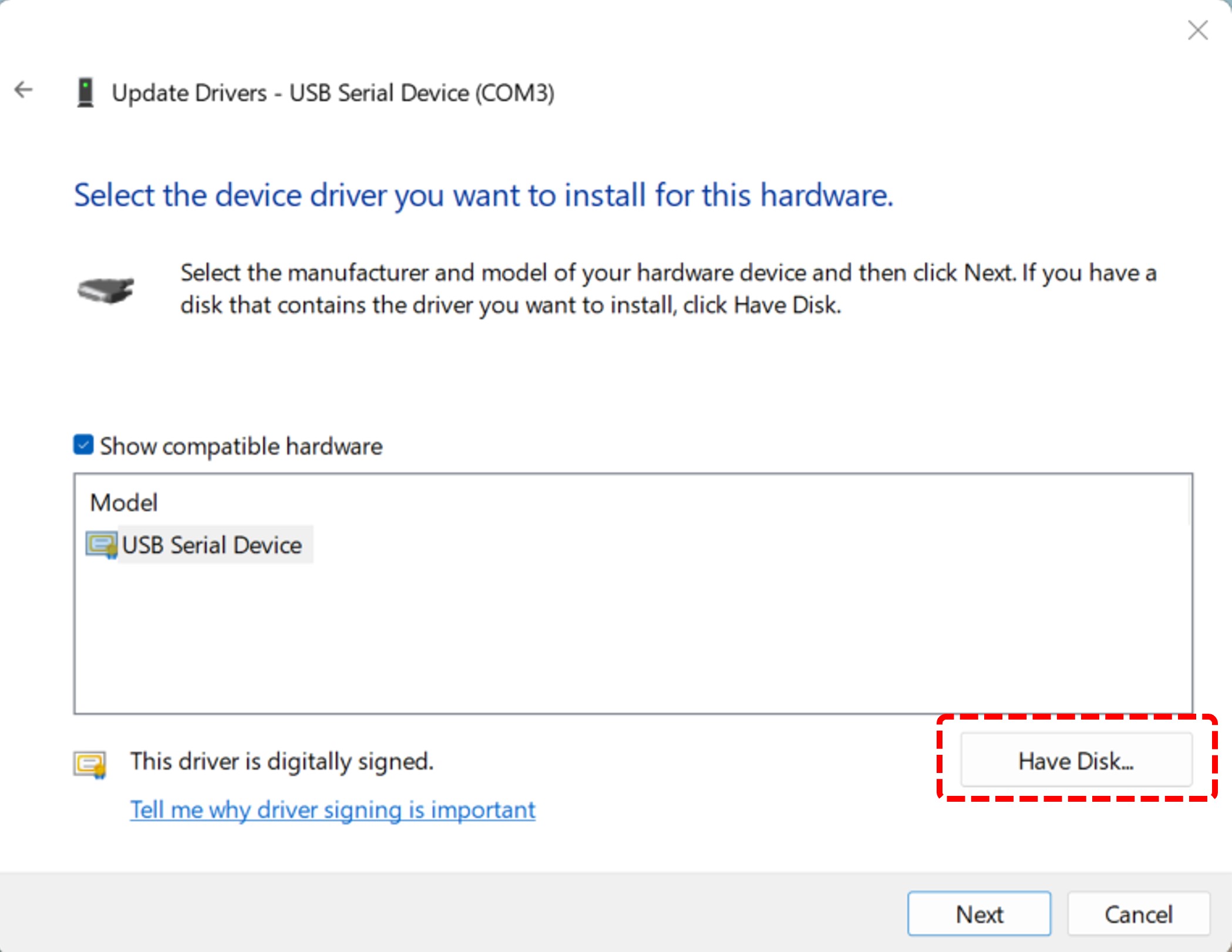
8. Click Browse and navigate to the driver you downloaded.
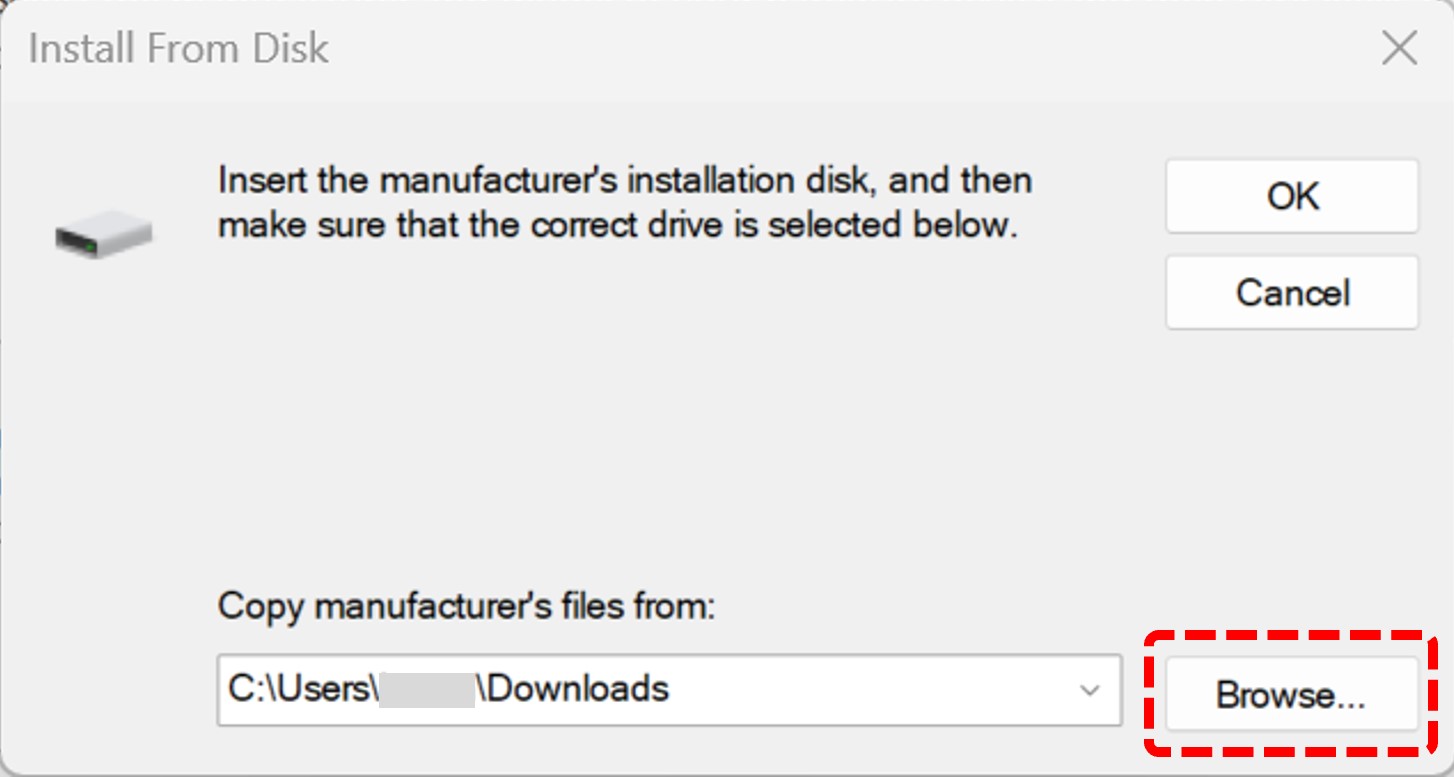
9. Select the USB Ethernet/RNDIS Gadget and click Next to load the driver.
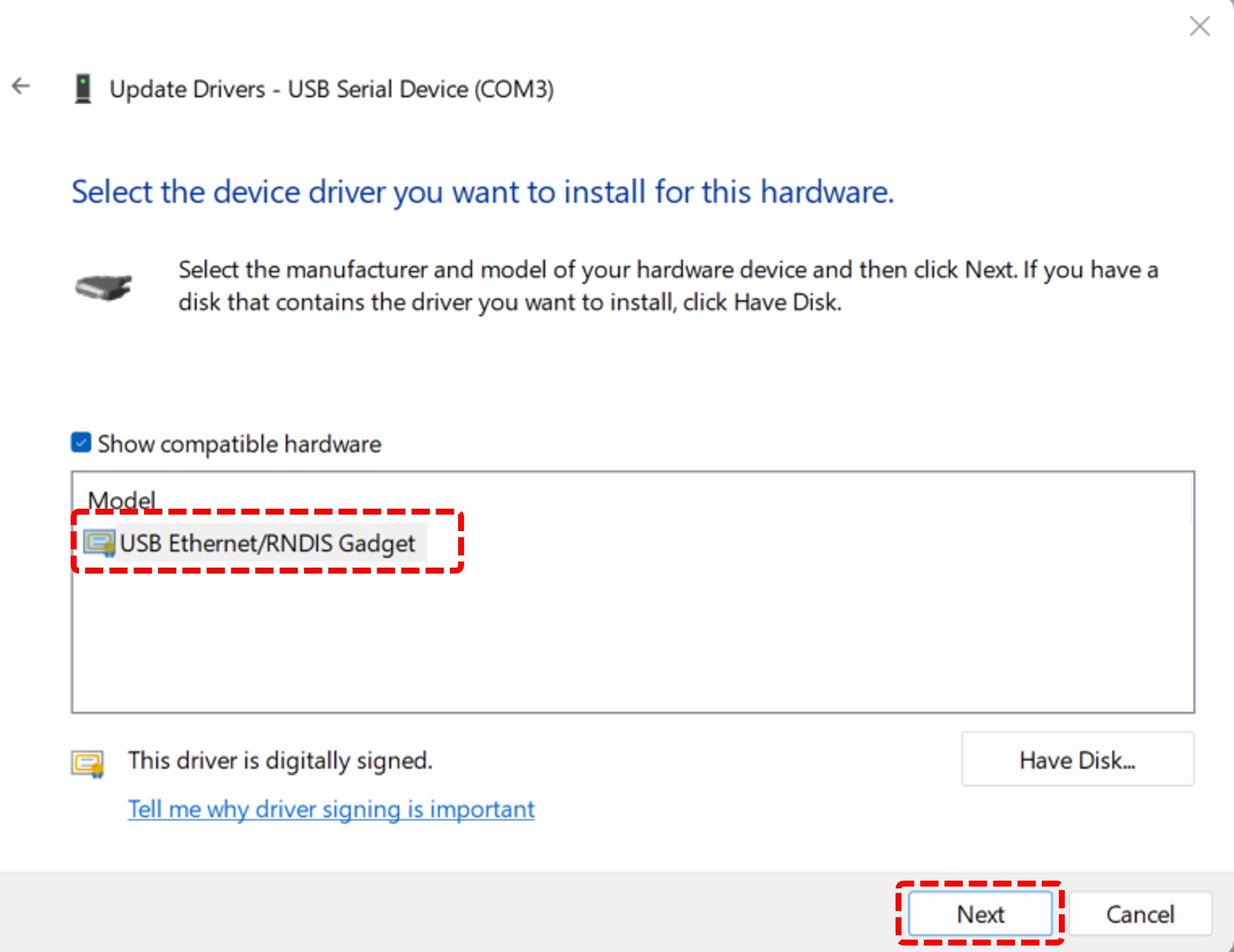
10. A successful update of the driver will then be indicated.
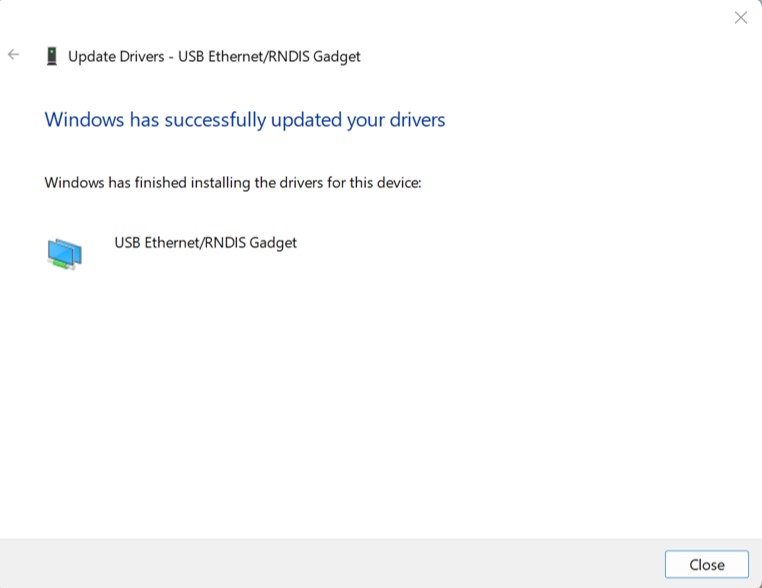
11. After the driver update is complete, Moku:Lab will be detected in the Network adapters as “USB Ethernet/RNDIS Gadget”. Note that your device name and numbering may be different. Now you should be able to connect to your Moku:Lab in Moku desktop app.
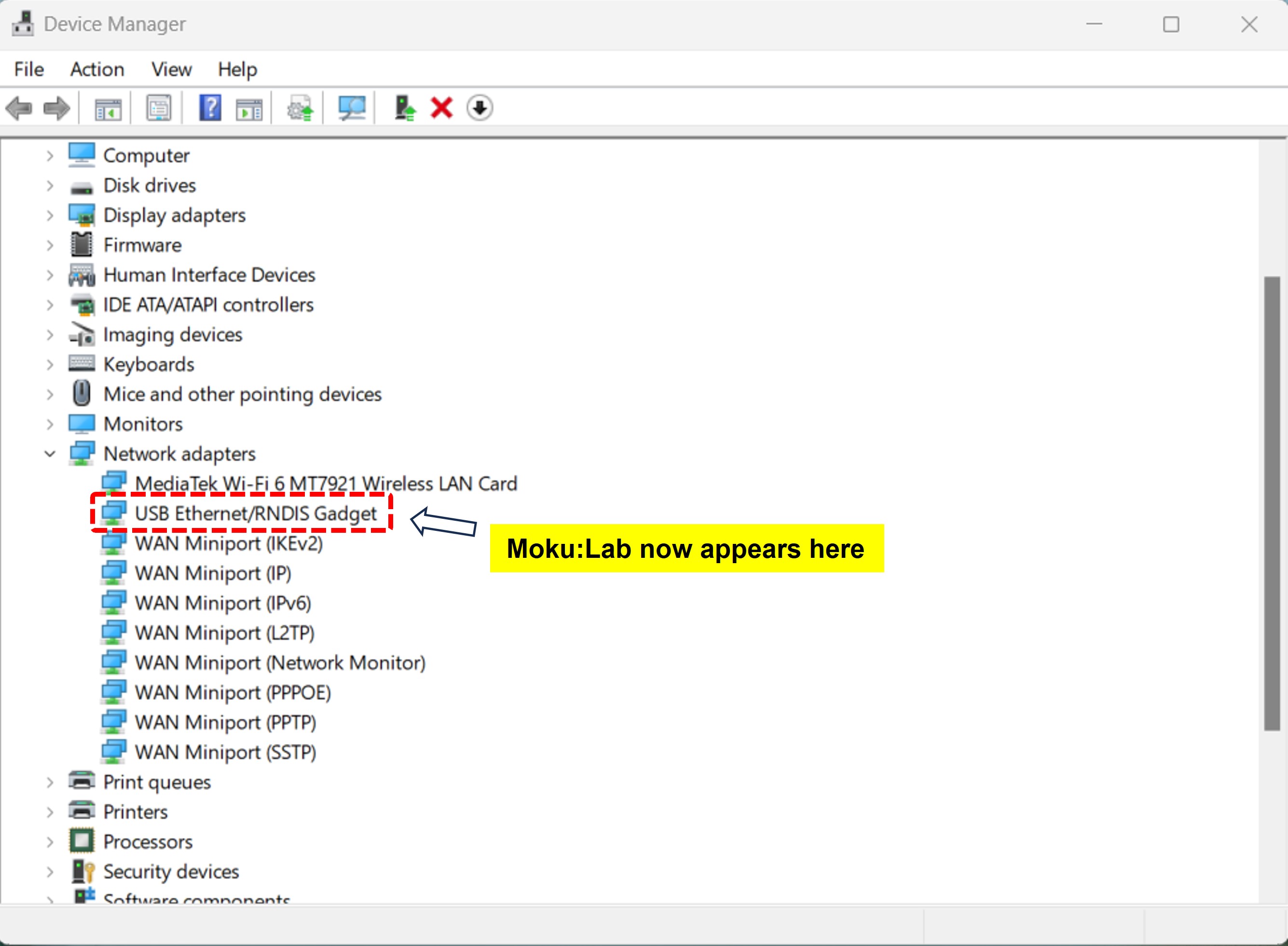
If you are still encountering issues, please reach out to us at support@liquidinstruments.com.